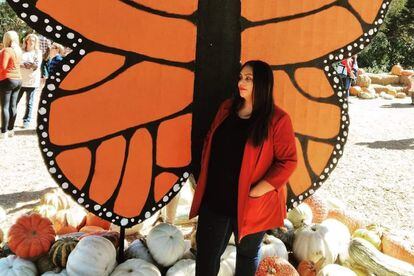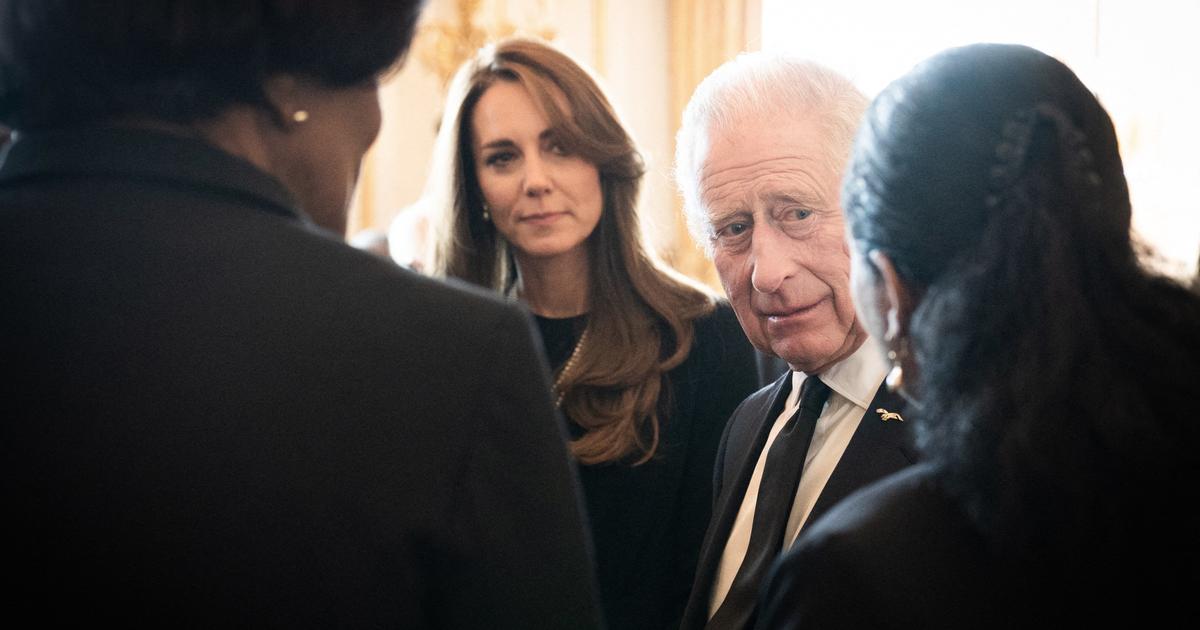Alma Hernández, 36, passed away this Sunday, June 19, in Dallas, Texas, USA. Courtesy
Alma Hernández was diagnosed with breast cancer in March: stage four, metastases in the lungs, liver and brain.
She was 36 years old, had four children and her mother was 1,500 kilometers away.
The young woman was born in Aguascalientes, where part of her family still resides, but she had lived in Dallas, Texas, with her husband for almost two decades.
At the end of March, the Parkland hospital sent a letter to Lucía Méndez detailing the delicate state of health of her daughter.
The woman immediately set out with the document for the United States, but she was rejected at the border.
The US immigration agents told her no each and every time Alma got worse and she came back asking for the same thing: to let her see her before it was too late.
“They call it humanitarian leave, but there is nothing humanitarian about her.
They are not moved by your pain, ”says her sister Adriana Hernández by phone to EL PAÍS.
Alma passed away this Sunday without her mother being able to say goodbye to her.
Now the family fights to try to cross and at least get to her funeral.
With the hospital report in hand, on April 1, Lucía Méndez and Adriana Hernández appeared at the border bridge of Nuevo Laredo, in Tamaulipas.
Customs and Border Protection (CBP) authorities denied them humanitarian entry because the patient was then only undergoing treatment and it was not known how long she might live.
"They told us to come back when he had a few days left to live," says Adriana.
As the weeks passed, the chemotherapy did not work and Alma's cancer worsened.
On April 17 they tried again: they showed documents from the hospital, the birth certificate to prove the relationship and the information of the person who would be responsible for them during the humanitarian permit.
His other sister, Leticia Hernández, does have residence papers in the United States, so they had that figured out.
But the answer was the same: come back later.
On June 15, Parkland Hospital issued a devastating diagnosis.
“The patient is hospitalized in intensive care due to the rapid expansion of the cancer and is not responding to treatment.
Unfortunately, we cannot cure it.
Her breast cancer is very aggressive and affects multiple organs.
Her life expectancy does not reach three months, ”reads the document that the medical center sent to the Mexican consulate in Dallas.
"They were already evicting her," says her sister.
So back to the truck, again the 12 hours that separate Aguascalientes, in the center of Mexico, with Nuevo Ladero, already on the border with Texas, again the no.
On this occasion, the immigration agents interpreted their insistence as a clear sign that they wanted to cross and stay in the US illegally.
"I want to see my daughter alive, that is my insistence," said Lucía Méndez.
They begged without success.
The patrol warned them that any further entry attempts would affect future visa applications.
His daughter was dying and Méndez could not stay without doing anything.
They decided to try it through the border of Piedras Negras, in Coahuila.
"It was even worse there," says Adriana Hernández in reference to the strong migratory pressure of the last caravans, "they didn't even let you go to the checkpoint to talk to the agents."
They suggested that his sister Leticia, a legal resident, come back for them and help them cross.
“She takes responsibility: if we don't go out, she goes to jail.
But we women have no interest in staying, I have my husband and children in Mexico, my mother has her house, we just wanted to see my sister”.
The procedure didn't work either: "They told us that they were denying it to us because Alma was undocumented."
Broken and desperate, Lucía and Adriana returned to Aguascalientes.
Alma died two days later.
With Mexico becoming the retaining wall for migration to the United States, processes at the border have become even stricter.
“There have been moments where everything was very confusing.
They told us that the consulate did not intervene.
We also had a lot of ignorance,” says Adriana, referring to the fact that they have been informed that they should have gone from the first moment to the delegation that the Ministry of Foreign Affairs has in Aguascalientes to request support.
The publication of her case on social networks, by the journalist Wendy Selene, has made the authorities pay attention to the story of Lucía Méndez.
This Monday morning, the Eagle Pass consul, Ismael Naveja Macías, announced that they had obtained humanitarian permits so that the two women could attend Alma's funeral, which is scheduled for Thursday or Friday.
“We will be waiting for you tomorrow to continue with the procedures.
The consulate is attentive”, Naveja wrote.
As she boards the truck that will take her back to the border, Adriana Hernández remembers her sister.
She describes a young woman who loved music and makeup, who worked only occasionally because she took care of her four children, and who dared to write on Facebook much more than she said.
“She was a serious woman but very playful as soon as you trusted her,” says Hernández, who now only hopes to be able to say goodbye to her.
subscribe here
to the
newsletter
of EL PAÍS México and receive all the informative keys of the current affairs of this country







